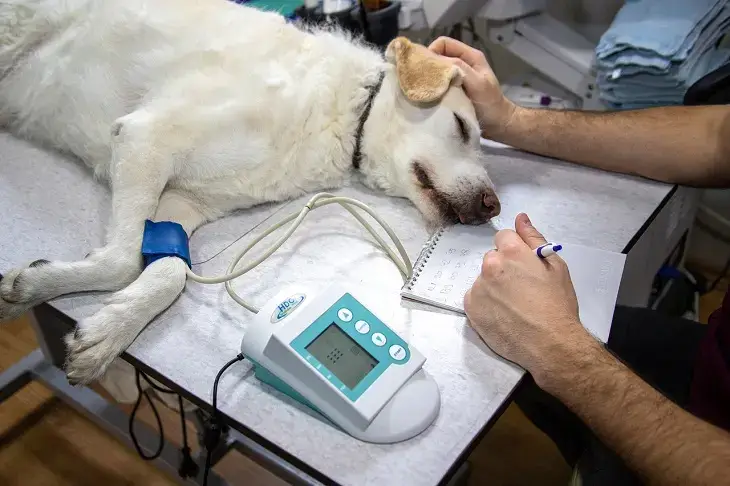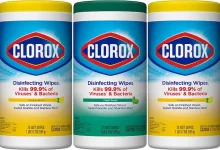My Dog Drank Cooking Oil, What Should I Do?

You wonder where your furry friend might be, so you enter your kitchen only to find your canine companion with its energetic tongue licking heavily on a puddle of spilled cooking oil. Nothing is more urgent, you panic ‘my Dog drank cooking oil, what should I do now?’
In this article, we will address this worrying situation in detail. We’ll take a closer look at what makes up the oils, how harmful the oils can be to your furry friend, how best to act in an emergency, and ways to prevent a likely reoccurrence.
Key Points
- Cooking oil can cause gastrointestinal toxicity in dogs if consumed in large amounts, resulting in vomiting, diarrhea, abdominal pain, and breathing issues. Obesity is also a risk from excessive fat intake over time.
- If your dog drinks a concerning amount of cooking oil, take the dog to the vet right away for possible treatment like inducing vomiting or giving activated charcoal to adsorb the oil.
- Follow any additional treatment plans from the vet afterwards, which may include anti-inflammatory medication, dietary changes, vitamins, and monitoring.
- Prevent access by tightly closing oil containers and storing up high in cupboards. Clean any spills promptly to limit dog’s contact with oils.
Components of Cooking Oil
Cooking oil is made up of fatty acids which are saturated, polyunsaturated like omega 3, and monounsaturated like omega 6 and omega 9. Omega 3, 6, and 9 are healthy fatty acids.
However, cooking oils contain saturated fatty acid and a host of other components that make up a high-calorie content which if your furry friend takes a large quantity of, would surely be very harmful.
Toxic Effects of Cooking Oil
Dogs hardly discriminate; they will eat or drink just about anything they perceive to be edible. If your furry friend drank a large amount of Cooking oil, there is a chance it could develop gastrointestinal toxicity meaning that its stomach and intestines would be affected.
There is also a likelihood of developing a swollen pancreas and its breathing could become unstable in the severe case that your dog drank cooking oil.
A direct result of a high-calorie intake is obesity. Drinking a lot of Cooking oil for an extended period could make your furry friend obese. Obesity further puts your dog at a higher risk of developing terminal diseases.
Symptoms of Cooking Oil Toxicity in Dogs
If your dog is intoxicated by cooking oil, you’re likely to notice vomiting. You could also hear some shrieking sounds due to the abdominal pain your pup may experience. There could be a lack of appetite, an apparent lack of energy, and diarrhea.
Watch out carefully for any of these symptoms and take your canine companion to the vet as soon as possible if the situation gets beyond your control
What Should I Do if My Dog Drank cooking oil?
If you think your dog drank a bothering amount of Cooking oil, the first line of action should be to get your dog to your vet as quickly as possible.
If the vet is unavailable, simply seek professional help from any healthcare expert you can reach and follow the instructions that they have given you. You can also call the hotline of any animal poison control center.
Emergency treatment may be required depending on the quantity of Cooking Oil your furry friend has ingested. If it’s a significant amount, vomiting may have to be induced in cases where vomiting does not occur after much intake.
As an alternative or in severe cases, activated charcoal may also be used to ensure the removal of the Cooking Oil from the stomach and intestines which would then be passed out in the stool. Depending on the severity, your vet would advise you on the necessary procedures that you have to follow.
Long-term Treatment of Cooking Oil Toxicity in Dogs
After completing the initial phase of treatments, your vet could recommend drugs, dietary changes, and essential vitamins that your canine companion would have to take for an extended period to get back to optimal health.
It is important you follow the guidelines as directed by your dog’s healthcare provider and give feedback on progress or shortfalls.
How to Prevent Your Dog from Drinking Cooking Oil
To prevent your dog from drinking Cooking oil you have to be proactive about it. You should tightly close the cooking oil bottles and put them safely away in a closed cupboard.
Cooking oils should not be left idly lying about as they can spill across the floor and your dog might just take a drink.
Appropriate hygiene in the home should also be done regularly and areas, where there has been a spillage, should be cleaned as quickly as possible.
Frequently Asked Questions
How can I tell if my Dog has ingested cooking oil?
You would usually notice retching or vomiting from your dog. Your dog can make shrieking sounds and roll about from abdominal pain, you might notice your normally agile canine companion unusually quiet. Diarrhea could also occur in some cases making your dog generally weak and dehydrated.
What Are the Symptoms of Cooking Oil Toxicity in Dogs?
If your dog has ingested a significant amount of Cooking oil, you will notice vomiting, diarrhea, and abdominal pain from gastrointestinal toxicity. A swollen pancreas can also develop. You will see breathing difficulties in severe cases. Long-term toxicity can appear in form of excessive weight gain or obesity.
Is It Safe to Induce Vomiting If My Dog Has Ingested Cooking Oil?
While inducing vomiting may help your dog, it is important that you do not induce vomiting except under medical supervision or under direct advice from your veterinary doctor to do so. Inducing vomiting on your own or when not deemed necessary can be harmful to your dog.
What Is the Treatment of Cooking Oil Toxicity in Dogs?
Depending on the severity of the toxicity in your dog, your vet would decide the appropriate treatment that is required. Treatment can involve fluid replacement, the use of drug agents that reduce inflammation as well as dietary and supplemental treatments to get your dog back to optimal health.
Can Cooking Oil Toxicity in Dogs Be Fatal?
Suppose your dog does not receive the required treatment after ingestion of large quantities of Cooking oil or you fail to follow the guidelines given by your vet after a severe case of oil toxicity.
In that case, it could, unfortunately, prove fatal for your dog. Obesity from long-term ingestion of Cooking oil can also be fatal. Do everything you can to ensure your dog comes back to optimal health after a big bout of Cooking oil toxicity.
Are There Any Long-Term Effects of My Dog Ingesting Cooking Oil?
Yes. There are unfortunately long-term effects of your dog Ingesting Cooking oil like excessive weight gain or obesity. Obesity increases the risk of your furry friend developing terminal diseases. It is therefore important to follow up on the treatment plan given to you by your vet.
Should I Take My Dog to The Vet If I Suspected They Have Ingested Cooking Oil?
Once again, the amount of Cooking oil you think your dog has ingested will determine if you should take it to a vet. If it’s a significant amount, yes. Also, if your dog shows telltale symptoms like excessive vomiting and diarrhea, even if you don’t think the amount of oil ingested is significant, you should take your canine companion to as soon as possible to the vet.
Conclusions
Cooking oils can be healthy sources of essential nutrients for humans. However, when they are ingested in significantly large amounts by your dog, it can pose a major health risk and in some cases the consequences are final.
Removing Cooking oils far from the reach of your furry friend is highly important to ensure it remains in its optimal state of health. However, if your canine companion should accidentally ingests a large amount of the Cooking oil, acting appropriately and following the treatment plans as given by your vet will surely return your dog that drank cooking oil back to its active, vibrant self.


